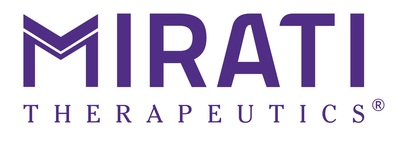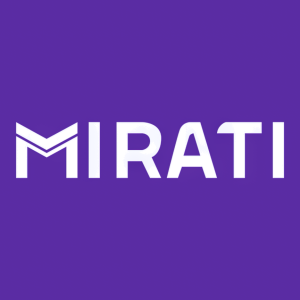Journal of Clinical Oncology Publishes Rapid Communication Featuring Updated Clinical Data for Adagrasib as a Targeted Treatment for KRASG12C-Mutated Advanced Solid Tumors
Mirati Therapeutics (NASDAQ: MRTX) announced promising clinical data for adagrasib, a potent KRASG12C inhibitor, demonstrating efficacy in patients with advanced solid tumors such as pancreatic ductal adenocarcinoma (PDAC) and biliary tract cancer (BTC). The findings, published in the Journal of Clinical Oncology and presented at the ASCO Plenary Series in April 2023, indicate an overall objective response rate (ORR) of 35%, with 33% for PDAC and 42% for BTC. Adagrasib's safety profile aligns with prior studies on NSCLC and CRC. This Phase 2 data from the KRYSTAL-1 study highlights adagrasib’s potential as a monotherapy, especially given its recent inclusion in the NCCN guidelines for CNS cancers, signaling a pathway toward regulatory approval for additional indications.
- Adagrasib demonstrated a 35% overall objective response rate across all solid tumor types, indicating meaningful clinical activity.
- Specific response rates were 33% for PDAC and 42% for BTC, which significantly outperform historical standards of care.
- The safety profile of adagrasib has shown consistency with results from previous treatments for NSCLC and CRC.
- Adagrasib's inclusion in NCCN guidelines for CNS cancers enhances its credibility and potential marketability.
- None.
Insights
Analyzing...
Data demonstrates compelling clinical activity, highlights adagrasib potential as monotherapy in solid tumors
Clinical data also presented at the ASCO Plenary Series:
Data follows recent inclusion of KRAZATI® (adagrasib) in NCCN Guidelines for CNS Cancers
In addition, findings were presented last week at the April session of the
The Phase 2 data of the KRYSTAL-1 study demonstrates the potential of adagrasib as a monotherapy in patients with unresectable or metastatic KRASG12C-mutated solid tumors beyond NSCLC and colorectal cancer (CRC). The data presented was based on confirmed blinded, independent, central review (BICR) responses. This is the largest Phase 2 dataset evaluating KRAS G12C mutated solid tumors other than non-small cell lung cancer and colorectal cancer.
The enrolled and treated population (n=63) included 21 PDAC, 12 BTC, 9 appendiceal adenocarcinoma, 4 gastroesophageal/esophageal adenocarcinoma, 3 small bowel adenocarcinoma, 5 ovarian adenocarcinoma, 4 unknown primary, 3 endometrial adenocarcinoma, 1 breast adenocarcinoma and 1 glioblastoma. The median prior lines of systemic therapy was two. Results showed an objective response rate (ORR) of
These findings demonstrate a meaningful improvement relative to the historically reported standard of care for PDAC and BTC. For patients with previously treated metastatic PDAC, current standard of care (gemcitabine + nab-paclitaxel or liposomal irinotecan + 5FU/leucovorin) has resulted in limited ORR (3
"We are thrilled to see the results of this Phase 2 study, which demonstrate a marked improvement on the current standard of care for patients with unresectable or metastatic KRASG12C-mutated solid tumors, including PDAC, BTC, other gastrointestinal (GI) and non-GI tumors, where few treatment options exist. It is particularly encouraging to see meaningful clinical activity in pancreatic and biliary tract cancers tumors," said
"We're pleased to share this data which demonstrates meaningful clinical activity in KRASG12C-mutated tumor types in addition to NSCLC and CRC, indicating a potential path to regulatory approval for adagrasib in additional indications," said
The primary endpoint for the Phase 2 cohort of the KRYSTAL-1 study was objective response rate. Secondary endpoints included duration of response, progression-free survival, overall survival and safety.
Findings were presented last week at the April session ASCO Plenary Series Program as a data presentation (Abstract 425082) titled, "KRYSTAL-1: Activity and Safety Of Adagrasib (MRTX849) In Patients With Advanced Solid Tumors Harboring A KRASG12C Mutation." The full abstract for the presentation can be found here: Program Guide – ASCO Meeting Program Guide.
The full
About KRAZATI® (adagrasib)
In the
Adagrasib continues to be evaluated as monotherapy and in combination with other anti-cancer therapies in patients with advanced KRASG12C-mutated solid tumors, including NSCLC, colorectal cancer, and pancreatic cancer. For more information, visit Mirati.com/science.
KRAZATI (adagrasib)
KRAZATI is indicated for the treatment of adult patients with KRASG12C-mutated locally advanced or metastatic non-small cell lung cancer (NSCLC), as determined by an FDA-approved test, who have received at least one prior systemic therapy.
This indication is approved under accelerated approval based on objective response rate (ORR) and duration of response (DOR). Continued approval for this indication may be contingent upon verification and description of a clinical benefit in a confirmatory trial(s).
About
For more information about Mirati, visit us at Mirati.com or follow us on Twitter, LinkedIn and Facebook.
Forward Looking Statements
This press release includes forward-looking statements regarding Mirati's business, financial guidance and the therapeutic and commercial potential of KRAZATI® (adagrasib), sitravatinib (TAM receptor inhibitor), MRTX1719 (MTA-cooperative PRMT5 inhibitor), MRTX0902 (SOS1 inhibitor), and MRTX1133 (selective KRASG12D inhibitor), Mirati's technologies and Mirati's other products in development. Any statement describing Mirati's goals, expectations, intentions or beliefs, financial or other projections, is a forward-looking statement and should be considered an at-risk statement. Such statements are subject to certain risks and uncertainties, including those related to the impact COVID-19 could have on our business, and including those inherent in the process of discovering, developing and commercializing medicines that are safe and effective for use as human therapeutics, and in the endeavor of building a business around such medicines.
Mirati's forward-looking statements also involve assumptions that, if they never materialize or prove correct, could cause its results to differ materially from those expressed or implied by such forward-looking statements. Although Mirati's forward-looking statements reflect the good faith judgment of its management, these statements are based only on facts and factors currently known by Mirati. As a result, you are cautioned not to rely on these forward-looking statements. These and other risks concerning Mirati's programs are described in additional detail in Mirati's annual report on Form 10-K, and most recent Form 10-Q, which are on file with the
Mirati Contacts
Investor Relations: ir@mirati.com
Media Relations: media@mirati.com
References
1. Wang-
2. Huffman BD,
3. Lamarca A, Palmer DH, Singh Wasan H, et al. Second-line FOLFOX chemotherapy versus active symptom control for advanced biliary tract cancer (
![]() View original content to download multimedia:https://www.prnewswire.com/news-releases/journal-of-clinical-oncology-publishes-rapid-communication-featuring-updated-clinical-data-for-adagrasib-as-a-targeted-treatment-for-krasg12c-mutated-advanced-solid-tumors-301808817.html
View original content to download multimedia:https://www.prnewswire.com/news-releases/journal-of-clinical-oncology-publishes-rapid-communication-featuring-updated-clinical-data-for-adagrasib-as-a-targeted-treatment-for-krasg12c-mutated-advanced-solid-tumors-301808817.html
SOURCE








